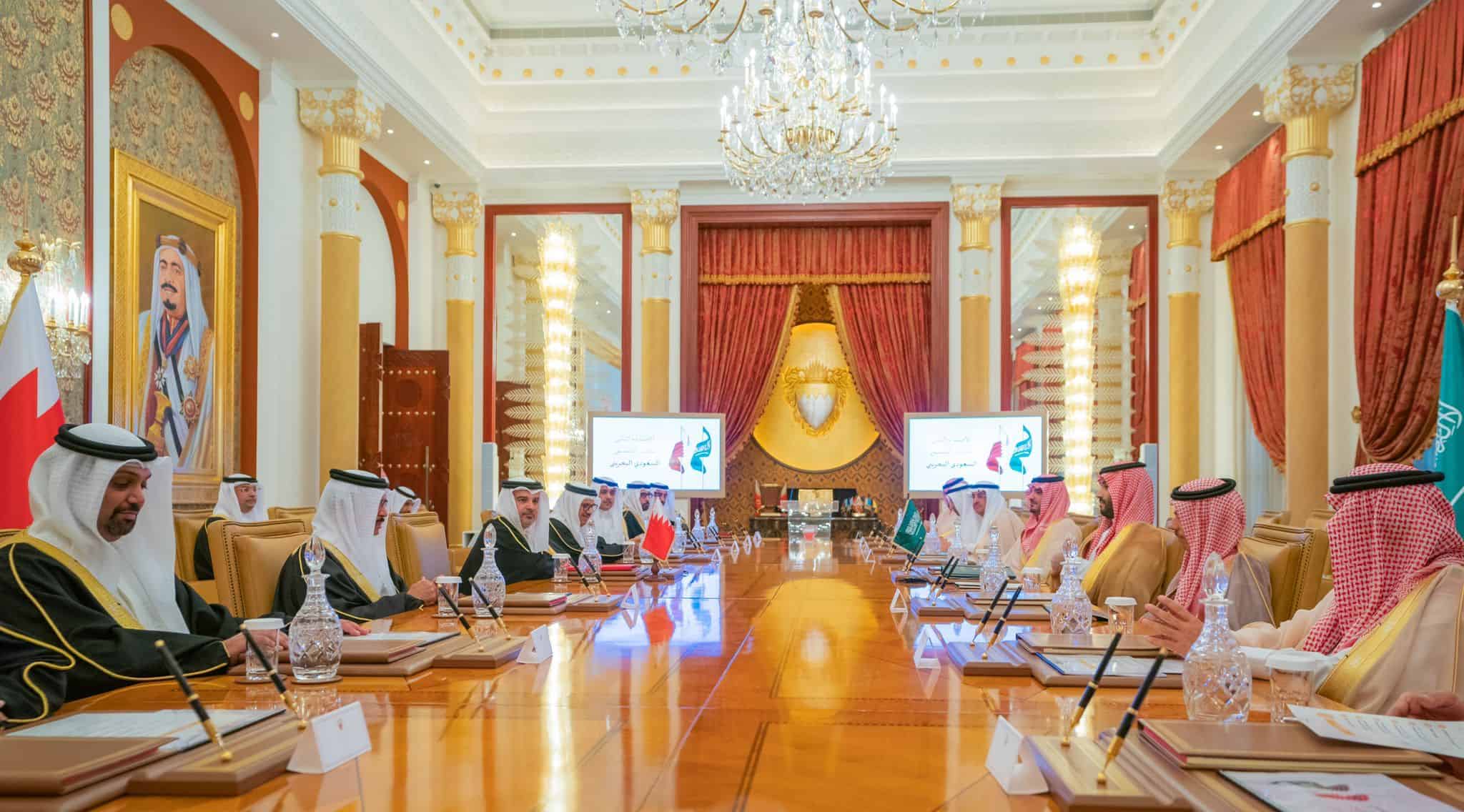Saudi crown prince Mohammed bin Salman bin Abdulaziz and his Bahraini counterpart Prince Salman bin Hamad Al Khalifa have chaired the second meeting of the Saudi-Bahraini Coordination Council, official sources said on Friday, December 10.
At the beginning of the meeting, Prince Salman welcomed Prince Mohammed and his accompanying delegation, in the Kingdom of Bahrain, stressing the keenness of the Bahrain to develop and consolidate bilateral cooperation to broader horizons to enhance common interests, said the sources.
For his part, Prince Mohammed reportedly stressed the importance of the Saudi-Bahraini Coordination Council and its subsidiary committees as an effective tool to push bilateral relations for further progress, besides benefiting from the available capabilities and appropriately investing in them.
The two sides also reviewed the report of the General Secretariat of the council, which explains the efforts made and outcomes achieved by the subsidiary committees, besides the recommendations and initiatives of the committees’ meetings.
Both sides also affirmed the continuation of strengthening cooperation and consultation on regional and international issues of common interest, and pushing their political action at the bilateral and international levels to broader horizons for security, stability and prosperity.
In this regard, an agreement was reached on a number of initiatives centered on the scheduled political consultations between the foreign ministers of the two countries, coordinating to counter extremist ideology among young people.
The foreign ministers are also expected to coordinate to support candidates of both countries in regional and international organizations and bodies.
They will also look to strengthen communication and cooperation between the consular authorities and coordinating positions on bilateral and international issues between the delegations of the two countries in New York and Geneva.
The two sides stressed the importance of continuing to strengthen joint work in the security and military fields, and in this context, reached a number of agreements to enhance cooperation and coordination in the several areas.
This is said to include “consultation in the field of security and military cooperation, enhancing cooperation in the field of cyber security, facilitating the procedures for transit of goods and trucks across borders, as well as facilitating the procedures for travelers through air and land ports, networking, and electronic linking between the two ministries of interior in a number of fields.”
The two sides expressed the importance of strengthening and developing economic relations to serve common interests and increasing economic cooperation between the two countries.
They also agreed to enhance means of cooperation on international climate policies, and to focus on emissions rather than sources through the application of the Circular Carbon Economy (CCE) approach.
They are also said to have sought to establish a regional complex for the extraction, use, and storage of carbon, in addition to cooperation in the field of hydrogen, developing technologies related to its transportation and storage, as well as exchanging expertise and experiences to apply best practices in the field of hydrogen projects.
The countries also looked at enhancing cooperation in the fields of energy efficiency, renewable energy, clean technologies for hydrocarbon resources, and development of related projects.
They also plan to promote the trade exchange of electric energy, and exchange expertise in energy sector projects, as well as cooperate to stimulate innovation, and apply emerging technologies such as artificial intelligence in the energy sector, and developing the incubating environment for it.








